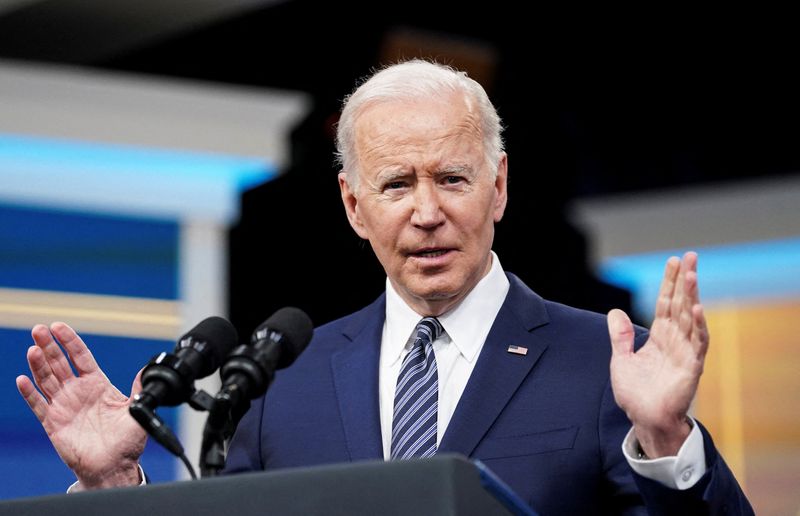By David Shepardson
(Reuters) -U.S. President Joe Biden on Tuesday made a renewed push for new tax credits for sustainable aviation fuel, a key part of reducing carbon emissions from air travel.
Biden last year called for tax incentives for low carbon jet fuel, made from waste and vegetable oils as part of a broader climate and social spending package that is stalled in Congress. The White House is targeting 20% lower aviation emissions by 2030 and those incentives are crucial to making the fuel competitive.
"We brought together the government agencies, aircraft manufacturers, airlines, fuel producers, airports," Biden said at an event in Iowa, arguing the push would result in "advanced, cleaner and more sustainable fuels for American aviation."
National Air Carrier Association President and Chief Executive Officer George Novak praised Biden "for recognizing the critical role that sustainable aviation fuel will play in further reducing the airline industry's carbon footprint."
Airlines face pressure from environmental groups to lower their carbon footprint and have pledged to use more sustainable aviation fuel (SAF).
Biden on Tuesday cited American Airlines (NASDAQ:AAL) and United Airlines' support for sustainable aviation fuel and said biofuels were key to decarbonize aviation.
"That's how we're going to get there," Biden said.
The push to accelerate carbon cutting in aviation is part of Biden's target of making the United States net carbon neutral by 2050.
It comes as the United States and Europe are trying to boost production of SAF, which is now made in miniscule quantities from feedstocks such as used cooking oil, and can be two to five times more expensive than standard jet fuel.

In September, the White House said three U.S. agencies are launching a government challenge to supply at least 3 billion gallons of SAF per year by 2030 and ample SAF by 2050 "to meet 100% of aviation fuel demand, currently projected to be around 35 billion gallons a year."
Airlines for America, an industry group representing American, United and others, praised Biden's call for a blender's tax credit and the 3 billion goal that has bipartisan support in Congress. The group said the credit "would help build the nascent market for SAF, providing a financial incentive that would enable fuel producers to integrate more SAF into the fuel supply at a price that would allow airlines to use more of it."